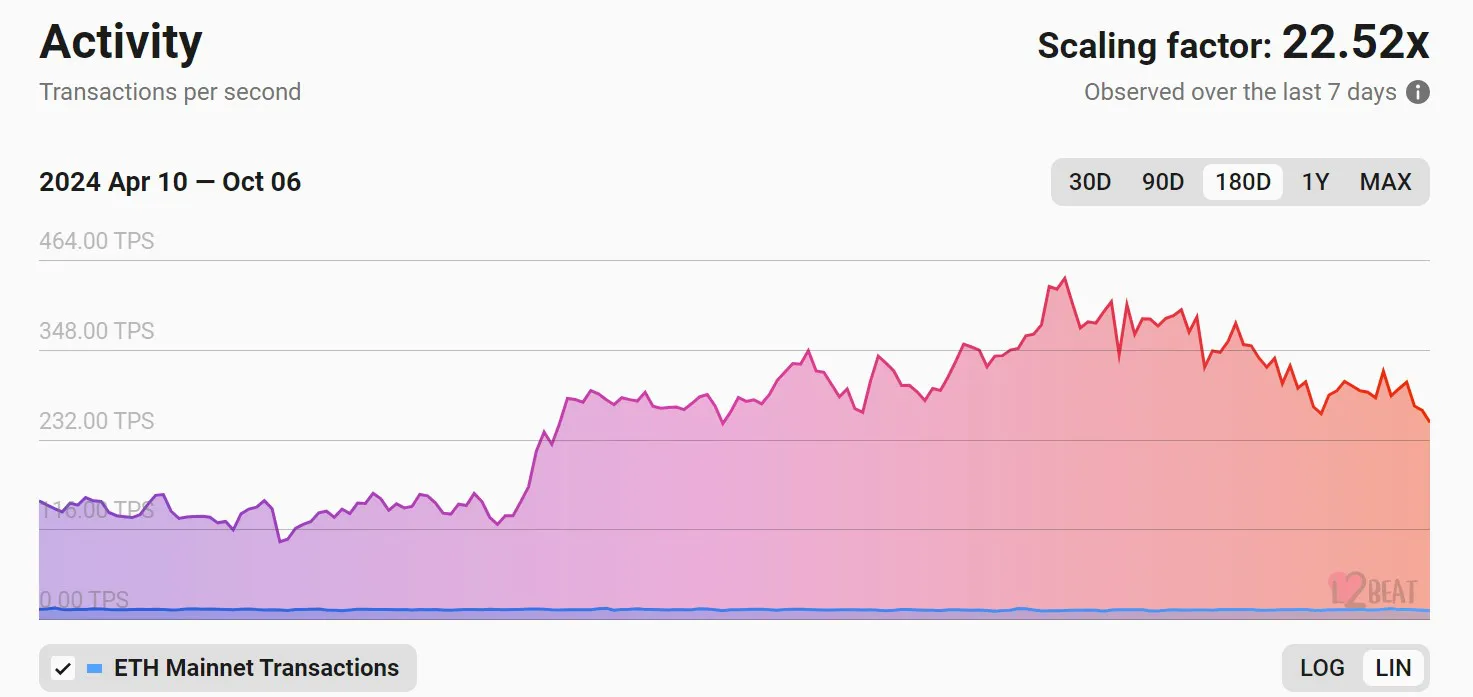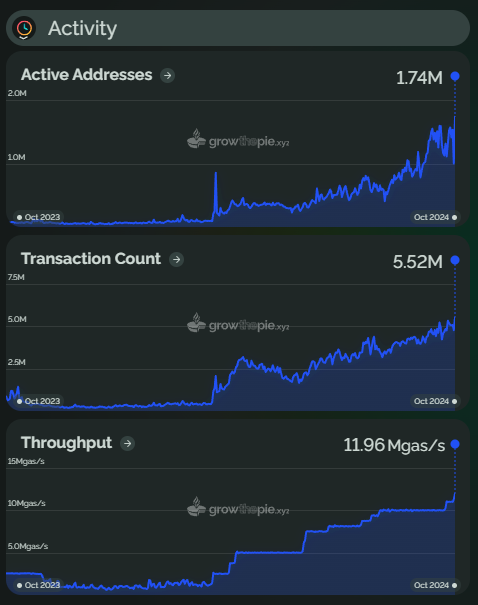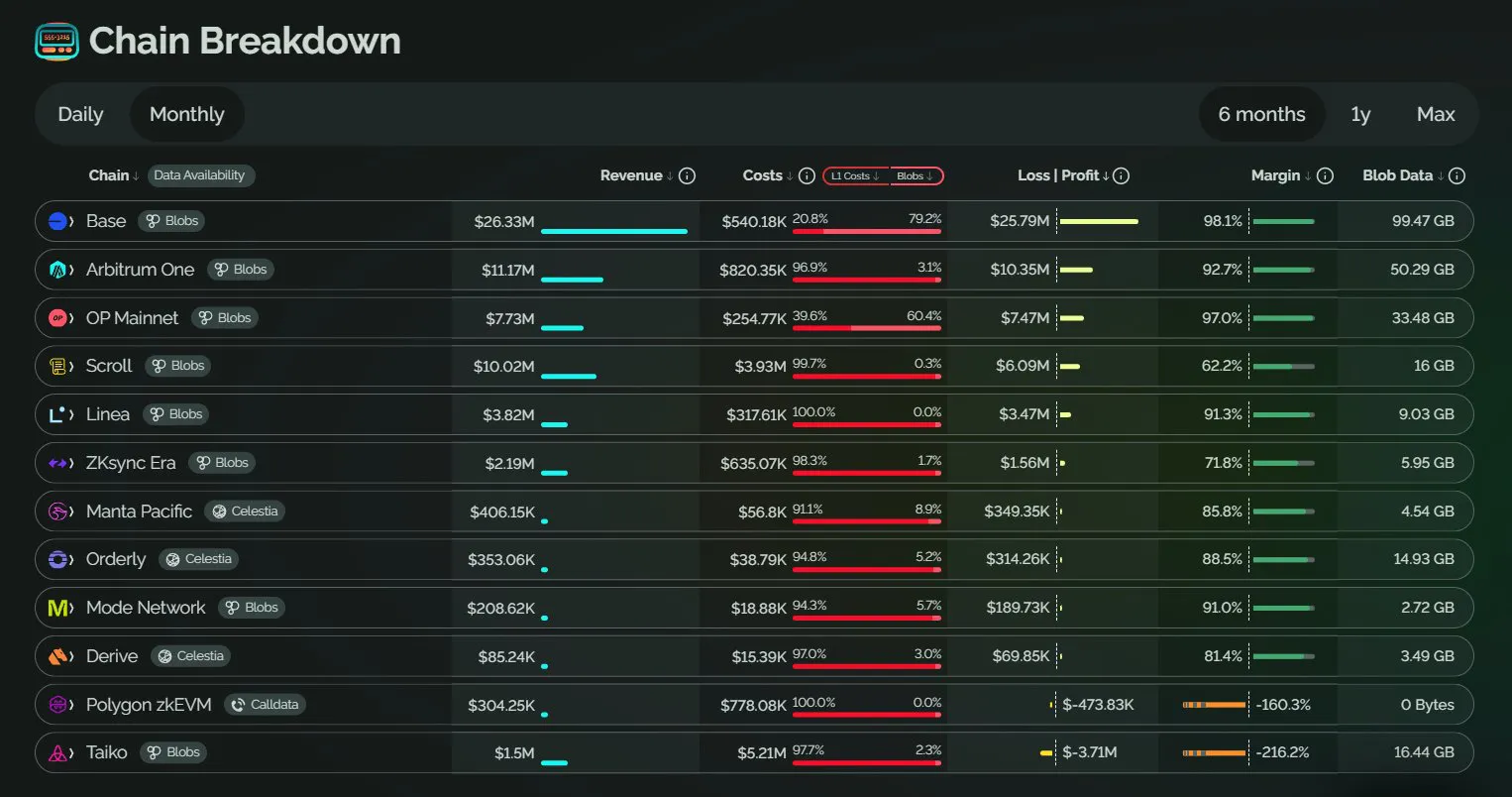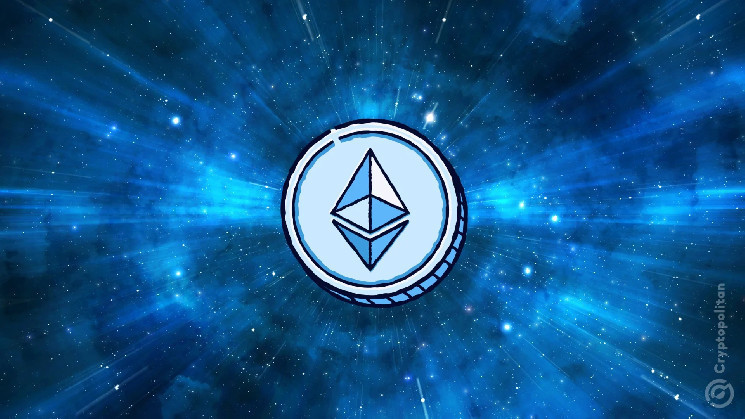Coinbase-incubated Ethereum Layer-2 network Base has seen activity on the network increase significantly over the last few months despite the general decline in adoption for other Ethereum L2 networks, including leaders such as Arbitrum and Optimism.
According to on-chain data, the combined transaction per second (TPS) for all Ethereum Layer-2 and Layer-3 networks was an average of 254.5 TPS over the 24 hours of October 6. This throughput represents a 73% decline from the all-time high of 440.4 TPS on August 20 and highlights how the Ethereum scaling solutions have been struggling to gain traction in recent months.
For L2s rollups alone, the networks recorded their lowest TPS since June 10, with only 101.8 TPS, representing a 33.5% decline from September 11, when it was at 153.2 TPS.
The networks with the biggest decline were Arbitrum and Linea. Arbitrum recorded just 429,000 active addresses on October 6, far below the all-time high of 1.13 million on May 19. It also saw the transaction count decline 35.7% to 1.7 million from the all-time high of 2.65 million on June 25.

Ethereum vs Layer Networks Transactions. (Source: L2Beats)
Linea was not any better, as user count dropped 87% from its peak of 765,777 on July 21 to less than 100,000 on October 6. The network, managing 55.7 TPS on March 31, is now 95% down to just 2.58 TPS. The decline in Linea activity is mostly due to the end of its point farming period, which required users to participate in several on-chain activities to accumulate points that determine their token distribution in an airdrop.
Although the network has not initiated its airdrop, the end of farming activity means users no longer have the incentives to use the network like before. Meanwhile, other networks also saw their activity decline, with Xai throughput down more than 50% from peak to 66 TPS and PlayBlock TPS down 17% from ATH of 18.1 TPS on September 30.
Base remains the outlier
Despite the decline in throughput for all Ethereum scaling solutions, Base remains a notable outlier. On October 4, the network saw a record high of over 66 TPS, highlighting its higher transaction count and speed.
The network alone also accounted for over 17% of all active addresses for all Ethereum L2s based on the last seven days, recording an all-time high of almost 1.52 million addresses versus 8.82 million addresses for all L2 networks. Interestingly, the number of active addresses for L2 has fallen on a 7-day rolling average from an all-time high of 10 million in early September.

Base reach new highs in activity – Growthepie
Base recent growth is a testament to the network’s resilience and performance, enabling it to become the second-biggest L2 network in terms of total value locked within a year of its launch. Unsurprisingly, it is the only top ten L2 network that saw its TVL grow in the last seven days, rising 1.42% to $7.24 billion, according to L2Beat.
Ethereum L2s record massive profits
Meanwhile, the decline in Ethereum L2 activities has not affected their profitability. Onchain data from Growthepie shows that most L2s have achieved on-chain profits over the last six months, with only Polygon zkEVM and Taiko having losses.
The most profitable is still Base, which generated $26.33 million in revenue over the period, with $25.79 million in profits. Other networks, such as Arbitrum One, OP Mainnet, Linea, and Scroll, also made $10.35 million, $7.47 million, $3.47 million, and $6.09 million in profits, respectively.

Ethereum L2s have wild profit margins – Growthepie
Although these profits only represent on-chain profits, as Ethereum core developer Daniel Lehrner noted, and do not include the off-chain expenses of operating an L2, such as server costs, salaries, and the rest, it remains a sizable profit margin for most of the L2s with Base having a 98% profit margin.







Leave a Reply